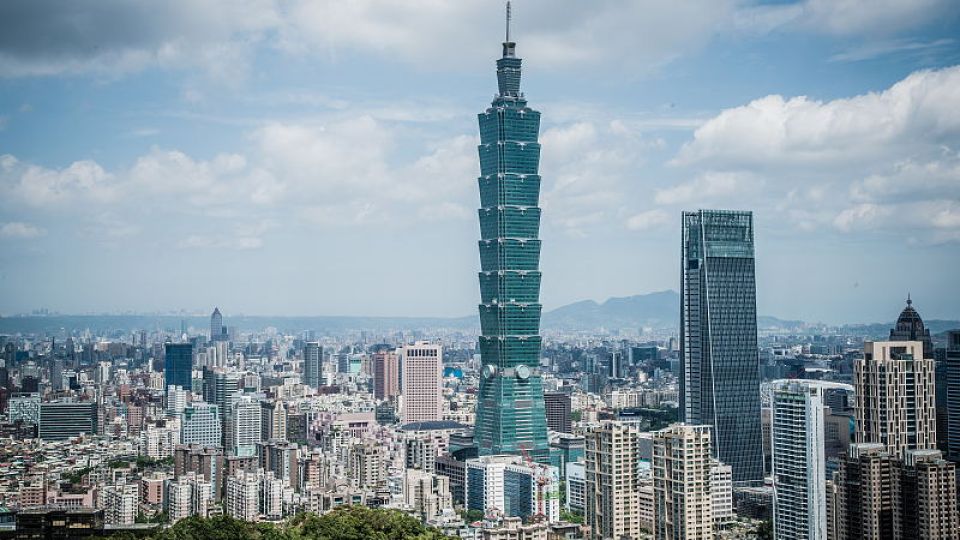November 15, 2022
BEIJING – In October, China held its every five-year grand meeting. The 20th National Congress of the Communist Party of China (CPC) was a week-long affair and new leaders were selected and important policies discussed. The meeting was a signal one.
Importantly, “firmly oppose and contain Taiwan independence” was inserted into the CPC Constitution. The previous wording called only for the advancement of reunification. Addressing the 20th Party Congress, President Xi Jinping, also general secretary of the CPC Central Committee, said Taiwan’s reunification with the motherland is an important and historic task and received thunderous applause.
The fact that no deadline was set for the national reunification does not square with what US officials and the Western media have said: Beijing is provoking a war with its declarations and actions toward Taiwan. This warmongering seems to stem from US President Joe Biden talking of nuclear warfare and declaring a “tech war” (cum new Cold War) against China just days before the 20th Party Congress. It’s possible that Biden’s goal is to create a crisis to expand his control over the US population (and perhaps beyond). Perhaps he also wanted to improve the Democratic Party’s chances of winning more seats in the midterm elections.
Beijing’s old (and still preferred) policy on reunification is to convince Taiwan that the Chinese mainland is an economic powerhouse and good relations with the mainland are a sine qua non for the island’s economy to grow and that political and other ties would naturally expand accordingly.
But there seems to be a hitch. One of the paramount subjects discussed at the 20th Party Congress was how to maintain a healthy growth rate for the Chinese economy amid the foundering housing market, the difficulties in striking a balance between anti-COVID-19 measures and maintaining normal life, and the aging of China’s export-led growth policy and growth forecast of 3.2 percent this year instead of the 5-plus percent earlier forecast.
Since some experts believe such a “low growth rate” will not impress Taiwan or anyone else Beijing will choose to reunify Taiwan with the motherland by force since its hopes for success of its economy would not attract Taiwan any longer. In other words, in those experts’ eyes the time for Chinese leaders to resolve the Taiwan question through the use of force is now.
But, upon further thought and closer examination, this is neither apparent nor logical. The mainland’s economic growth this year will still be about double that of the Unites States’ anticipated GDP growth rate. Looking ahead, the mainland’s growth in the next few years will be 4-5 percent according to forecasts made by several international economic agencies, while the US’ growth will fall to 1-plus percent and Taiwan’s to 2-plus percent.
Thus the available data certainly do not suggest the mainland needs a war, because that would distract it from its focus on the economy and, more importantly, deviate it from its plan to resolve the Taiwan question peacefully.
President Xi’s plan is to focus on innovation-driven growth, based on China’s financial resources and its huge human resources, especially its massive pool of talents, to spur economic growth. This makes sense and the prospects for success appear good.
Besides, the current causes of China’s slowdown will no doubt dissipate. In any case, Xi’s plan is especially to keep and expand cross-Taiwan Straits ties.
Xi also spoke about expanding China’s global status to realize the Chinese Dream — which is usually seen as China’s rise as a great power.
In the context of Taiwan’s reunification with the motherland, it means it will happen inevitably but gradually. The fact Beijing shifted its global strategy in 2016 to focus on increasing its global influence, rather than only regional influence, is further evidence of this approach.
Likewise, Beijing realizes Taiwan leader Tsai Ing-wen adheres to a status quo policy as far as cross-Straits relations are concerned. But what is prompting her to make provocative moves against Beijing is US encouragement.
In conclusion, Beijing still attaches priority to realizing national reunification through peaceful means, while not ruling out using force.
The author is the Stanley J. Buckman Professor (emeritus) of International Studies at Rhodes College in Memphis, Tennessee. He is the author of more than 35 books on China.
The views don’t reflect those of China Daily.


